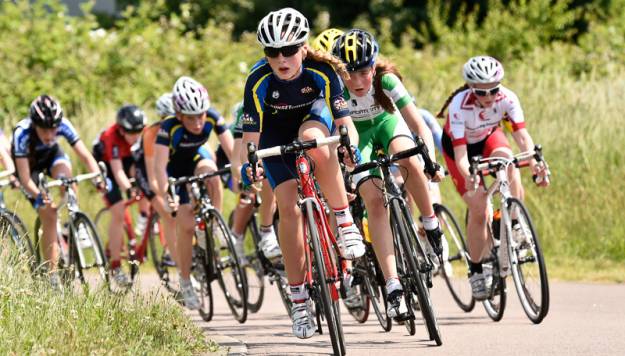British Cycling has signaled some disappointment at the Government’s attempts to bring road racing regulations into the 21st Century, labelling proposals “incomplete” and calling for more work to be done.
The proposed regulations, arising from a 2013 Department for Transport consultation based on plans developed by British Cycling and the Association of Chief Police Officers (now the National Police Chiefs Council), aim to reduce regulatory burdens and make the process for organising cycle races on the highway clearer for organisers, police and the public.
Announcing the new regulations earlier this week, Cycling Minister Robert Goodwill recognised the “great appetite for cycle racing in this country” and outlined the government’s desire to "inspire a new generation of cyclists, rather than act as a headwind”.
In response Jonny Clay, British Cycling’s Director of Cycle-Sport, said:
“We welcome the government’s intentions and take the Minister’s desire to reduce regulation and make it easier to organise road races at face value. However, the Department for Transport needs to look again at these proposed regulations prior to implementation.
“Fundamentally, this work is incomplete as the proposals fail to address the biggest barriers that have existed for decades – namely the ability of an individual police officer to impose restrictions on events at any time, irrespective of months of planning and meticulous risk assessments on the part of dedicated volunteers. The reality is that any reduction in regulation will only exist on paper.
“This isn’t about our ability to bring world class events such as the Tour de France or the UCI Road World Championships to British roads; it’s about local clubs and everyday riders having the ability to experience the challenge of road racing in their local area. These events, which only happen occasionally and are very often delivered by dedicated volunteers, are important for the health of the sport and good for the local area.
“I can understand why Ministers would want to make a positive announcement to coincide with Chris Froome’s outstanding victory in the Tour de France, but we don’t think it is their intention to leave volunteers in limbo, leave the police with an unnecessary burden, and leave cycling as a whole with the kind of restrictions we have faced for decades.
“There were a record-equalling 10 British riders in this year’s Tour, eight of them products of British Cycling programmes, but for our success to be sustainable there needs to be vibrant grassroots racing in this country.
“We hope the Minister and his officials are willing to work with us and other relevant bodies to ensure that, when new regulations are introduced in the autumn, they move beyond warm words and constitute a genuine step forward.”









